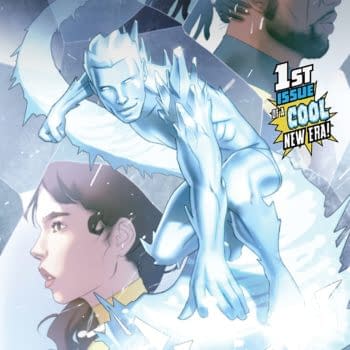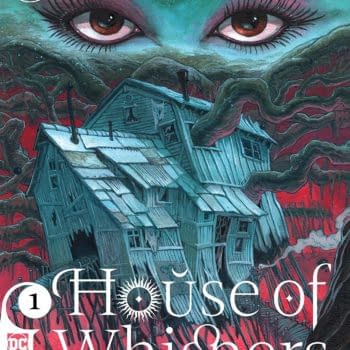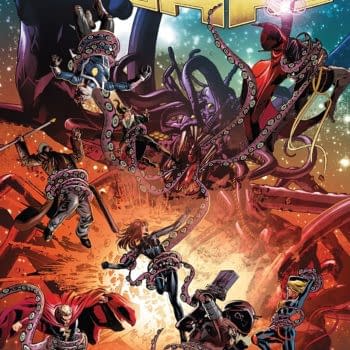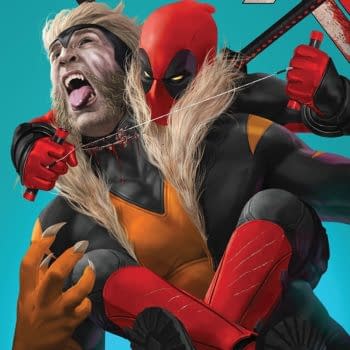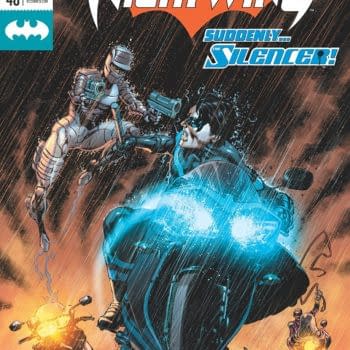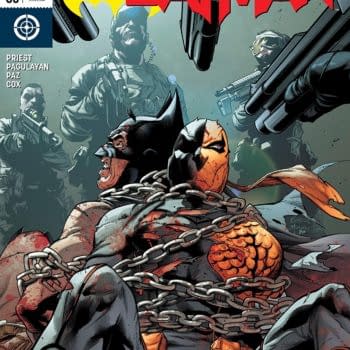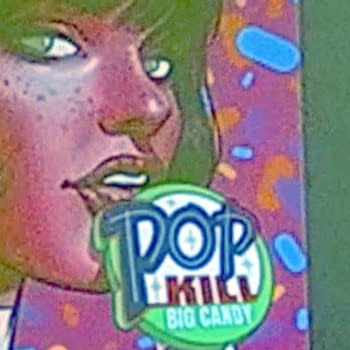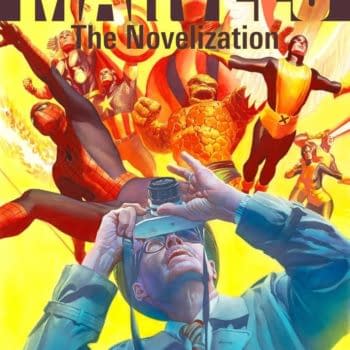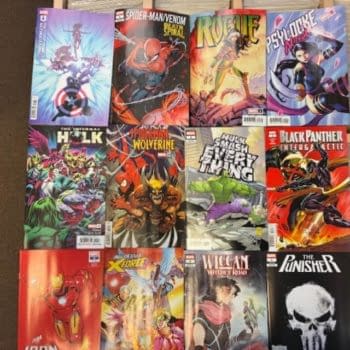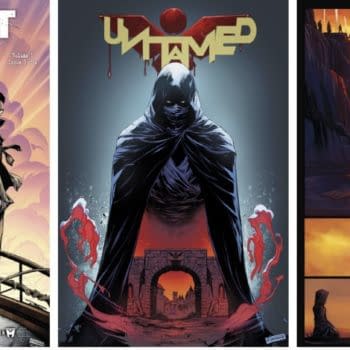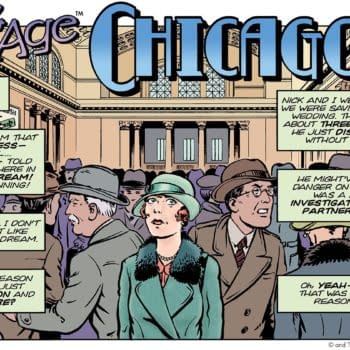Posted in: Comics, DC Comics, Marvel Comics | Tagged: Alan Moore, avengers, black panther, chadwick boseman, chris claremont, editorials, fantastic four, frank miller, grant morrison, jack kirby, len wein, ryan coogler, stan lee
The Politics of Black Panther's First Appearance and Superhero Comics as a Whole
Fantastic Four #52 and #53 were hotly political comic books putting out a daring message in a tumultuous time in American history.
To put it in perspective, these two issues were published two years after the Civil Rights Act, one year after the Selma-Montgomery March, the Watts Riots, and the murder of Malcolm X, and two years before Dr. Martin Luther King Jr. was assassinated. To put this in further perspective, people were being constantly killed for saying black people deserve the same rights as whites.
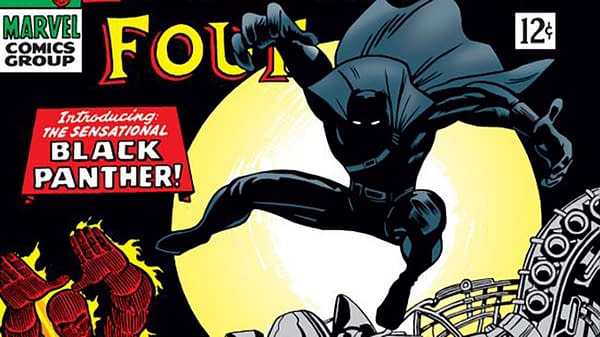
There's been plenty of less-than-equitable dialogue going on right now over comic book companies and Marvel in particular "putting politics" in their comics.
The common retort has been that this has always been the case, which is demonstrably so given a comic about an African nation with hyper-advanced technology and a leader that took down Marvel's First Family of Heroes with little struggle. The response that has been that it used to be more "subtle" or "serve the story more." Firstly, nothing about this comic, the original "Secret Empire" of Captain America and the Falcon, or O'Neil and Adams's Green Lantern/Green Arrow. There was certainly nothing subtle about Dr. William Moulton Marston's Wonder Woman or Simon and Kirby's own original Captain America comics. The former is often used as a psycho-sexual profile for Dr. Marston, and the latter was literal propaganda for which Simon and Kirby received death threats from Nazi sympathizers.
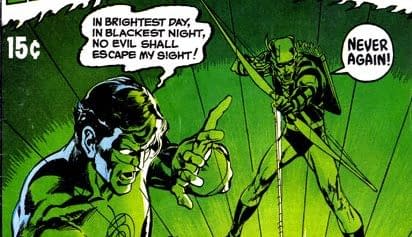
Regarding the "serving the story more" argument — well, I'd really like to know which comics have "extraneous politics." If it's a one-off line about Trump, then it shows a certain level of fragility that it would make one put down that comic. Whenever I see an overtly political message surfacing in a Big Two comic book, it's often quite relevant to the narrative.
If it's "political" because it's a woman, person of color, a Muslim, or a member of the LGBTQ+ community, then that's not political, and this hypothetical reader really needs even the smallest damned iota of perspective. People's existence and representation should not inherently be contentious; it has only been made contentious by people who want such non-white, non-male, non-sexual, and non-cis characters gone, silenced, or otherwise ignored and invalidated.
This is all before we even move onto the point that everything is political, and people in tights beating up criminals is absolutely riddled with subtext that is worth analyzing, being deconstructed, and discussing. Batman beating up mentally ill people says something about the quality of psychiatric care in the U.S and our perception of people with mental health issues that this is often justified with little context or explanation. Spider-Man stopping a mugger being the norm says something about how we perceive crime itself that someone who is potentially at the end of their rope and possibly just this desperate to feed their families or even see tomorrow.

Now, I'm not saying that these things need constant and unceasing deconstruction and questioning. Trust me, that is not what's happening right now. I read some 30-odd comics a week from the Big Two at this point, and not everyone has a Watchmen-style picking apart of Superman. At this point, it's mostly Falcon, Black Panther, Green Arrow, Deathstroke, Green Lanterns, Luke Cage, America, Priest's Justice League, and the odd issue of an X-Men title or Detective Comics bringing "overt politics".
I enjoy seeing Spider-Man web up a mugger. I enjoy watching Batman beat the tar out of the Joker, Victor Zsasz, Two-Face, etc. But to avoid deconstructing, questioning, analyzing, or even discussing the implications of superhero comics or the world around us through the medium of superhero comics is a horrifically restrictive and myopic way of looking at your preferred medium.
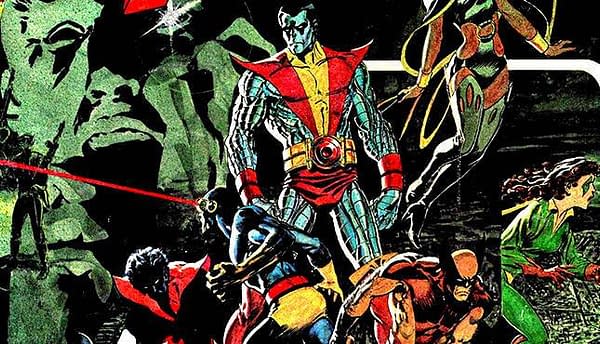
Many of the best-remembered creators, like Alan Moore, Len Wein, Grant Morrison, Chris Claremont, Frank Miller, and others made their name putting out comic books that had a strong political tinge. Hell, I don't even agree with the politics of most Miller comics, but I'll give him credit for trying to say something with his books.
On top of that, Stan Lee and Jack Kirby clearly thought that superhero comics could be more than punching people. They can and should be. If they ever stop completely, then the genre would truly be dead and no longer worth reading.


